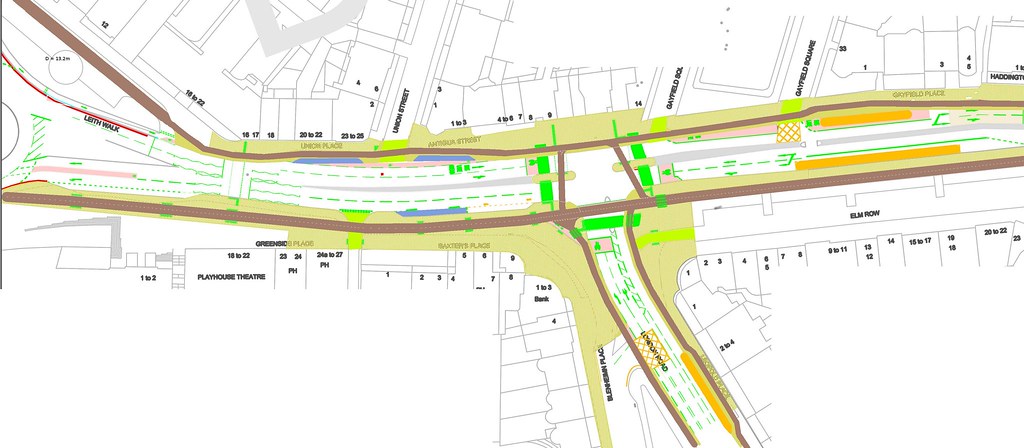There is some.....good news for cycling in Scotland!
Yes, I know that's a shocking thing for me to say. Actual, real good news. Bona fide, the real deal, not fake good news.
Wait for it.........WAIT FOR IT.......
The government is finally investing in cycle infrastructure!!
Wow!
Yes it is a good news day. Keith Brown has at last made an announcement that I actually approve of. Credit where credit is due. Effectively the £20m I discussed in an earlier blog is real new money. Not only that, but a chunk of it is set aside to spend on an exemplar project in Leith Walk (Edinburgh). A what?! A project that will demonstrate, in Scotland, that cycling can be designed into our roads and can be safe for all. The rest is to be spent on other cycle infrastructure projects around the country by Sustrans.
But wait!
You knew that was coming didn't you.
It's not all a bed of roses, as we point out at POP. Firstly, it's just a start. It's a good start and a very welcome one, but it is still only a fraction of what we need to make Scotland a cycle friendly nation. We need a minimum of £100m a year, and we are still a long way off that yet. Also this is not recurring funding. It is planned over the next two years, but there no commitment to continuing it after that. We need sustained investment.
One of my main concerns though, about the exemplar project, is that it absolutely has to be exemplar. IT HAS TO BE. Imagine you are a non-cycling member of the public (Joe and Josephine Blogs) and you've seen today's news. Fast forward 2 years and the new Leith Walk is unveiled. Unfortunately, Edinburgh Council whilst accepting the money, only made a half baked attempt at designing it correctly. There are issues, and the cycling lobby isn't happy.
Joe: Hey Josephine, you know that cycle lane that they were building in Leith...
Josephine: Aye?
Joe: It says here in the paper that despite the government spending £3.6m on it, and the council putting in some money as well, and having built an all singing all dancing wee lane for the cyclists.....they are still complaining about it!
Josephine: Really!?! You mean my hard earned taxes have been wasted on these no-gooders?!? The cheek! Even when a gold plated cycle lane is built for them they don't like it!
Joe: Aye! Stuff them! I'm writing to my MSP to tell him not to bother next time and spend the money on a another Forth Road crossing instead!!
Am I being ungrateful for the money. Absolutely not! I'm just pointing out that is this scheme will become a showcase for what can be done....an exemplar project.....therefore it absolutely has to be an exemplar project. That does not mean that it has to be gold plated, as suggested by Josephine and Joe, but it needs to demonstrate that we can build high quality infrastructure that is entirely fit for purpose - cycle infrastructure that not only cyclists want to use, but that non cyclists want to use!
Why is this important? It's important because there is absolutely nothing special about Leith Walk. It's just another road in another city. A busy road, yes, but there are plenty of other busy roads. It is for the very reason that Leith Walk is nothing special that makes the project to improve it, special. If it can work in Leith, it can work in Anniesland, it can work in Broughty Ferry and it can work in in every city town and village in Scotland.
Edinburgh City Council (yes I'm talking directly to you) - can you please, PLEASE look again at the designs you have for Leith Walk. Can you please listen to what the campaigners are saying. Can you please look at the plans that Greener Leith have on their site and take them into serious consideration. Can you PLEASE make sure that this project is truly a exemplary demonstration of how we can make our roads safe for all. The future of Scotland as a cycle friendly nation is resting in your hands.
 |
| Alternative Leith Walk Design by Iain Longstaff |
No pressure.